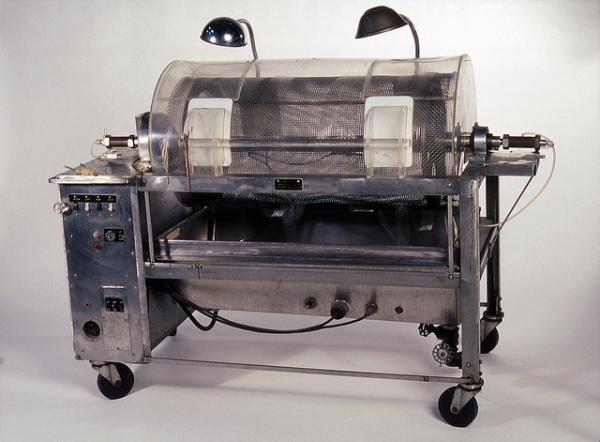The death of Ensa Cosby, Bill Cosby’s daughter, and inspiration for the Cosby Show character Vanessa Huxtable died in the last few days from renal disease– a disease with a high incidence in the African American community.
Kidneys are not beans
The kidneys help to regulate sodium and potassium levels, eliminate metabolic waste products and control our fluid balance. Kidney function can be measured in several ways, but creatinine clearance is the standard – measuring how well the kidney filters creatinine, a metabolic byproduct of muscle metabolism. While collecting a 24-hour sample of urine is the most accurate test, physicians rely on our blood level of creatinine to roughly measure kidney function.
Our kidneys are designed to be resilient, up to 85% of their functional ability can be lost before there are any clinical signs, including the elevation of blood creatinine. While this resilience is beneficial, it makes kidney disease a more significant diagnostic challenge. In kidney disease, there are rarely symptoms that might concern a patient enough to seek medical care. The urine is still yellow and the amount, if considered at all, appears reasonable. In discussing renal failure with my patients, I found an analogy to gasoline was helpful. In kidney failure, the octane rating of the urine decreases to the point where it becomes leaded (actual lead is not the issue, it is the build-up of potassium and waste products). While there can be multiple causes of renal failure, hypertension, another silent disease, is a frequent cause in African Americans. Other causes include
Silent and deadly
African Americans have a higher incidence of hypertension, which in turn results in a higher incidence of kidney disease or dysfunction. The combination of two clinically silent conditions is the perfect health storm. Diabetes, another of the chronic illnesses often found in patients with hypertension, may contribute to renal disease as the obstruction of small vessels rob the kidney of oxygen and cause additional, and again silent, loss of kidney function.
Kidney disease exists along a spectrum, the normal function gives way to impaired function, termed renal insufficiency, which ends in the kidneys failing completely, end-stage renal disease – a condition requiring dialysis or a kidney transplant.
Treating kidney disease
Kidney disease is managed by a medical specialist, the nephrologist. They identify specific causes of a patient’s of kidney disease and prevent disease progression; restoring kidney function to normal is rarely possible. Even when hypertension and diabetes are well controlled, they may continue to wreak havoc on the kidneys. The nephrologists job is to slow the pace of progression using diet and medication to address symptoms.
The kidneys regulate potassium and sodium level by exchanging them for one another in our urine. Too high a potassium level, swap it and take in a few more sodium molecules. The difficulty is that sodium has a much broader range of safe values than we have for potassium. Patients with renal disease cannot rid themselves of potassium as efficiently and must be extremely careful about their potassium intake. Oranges, avocados, bananas, and even chocolate are all off the diet being far to great a source of dietary potassium.
The kidneys also help regulate our overall fluid balance. Too much fluid and it is urinated away, too little and the kidney doesn’t filter as much fluid out of our bloodstream. With renal disease that fluid control is lost and we cannot rid ourselves of excess fluid as readily – so regulating the intake of fluid is another of the nephrologist’s goals. Ironically, the fluid retention that accompanies renal disease makes hypertension worse and the usual first-line treatments, medications that increase urination, are less effective or even harmful in this setting. Additionally, the increased fluid in our bloodstream put additional strain on the heart in its role as a pump; and the higher levels of potassium are an irritant to the heart’s electrical system promoting abnormal heart rhythms. Again, a perfect storm.
Renal disease is much more than a patient problem
Renal disease profoundly impacts patients, in terms of their health and finances. It was a little over 50 years ago that dialysis became the first option to save the lives of patients with end-stage kidney disease. It changed a death sentence into a tractable chronic illness. But that tractability came at a price. The advent of dialysis brought with it two other remarkable events.
First, the passage in 1972 of Section 2991 of Medicare funding that determined that patients with end-stage renal disease were “disabled” and were eligible for payment of these medical expenses by Medicare. That relieved patients of overwhelming financial costs. That program, by 2015 had grown to spend over $100 billion. Second, was that the scarcity of dialysis programs and the overwhelming number of patients in need of dialysis in the 1970’s resulted in rationing of care, we simply could not accommodate everyone. Panels were formed to determine who would receive care and who would not. Can you imagine the ethical and emotional challenges to the physicians and community leaders who sat on these real “death” panels? I was a surgical resident in those days; I remember the patients that we cared for, with complications, that because of the advent of dialysis, are today found only in textbooks. Thank god those days are behind us now.




